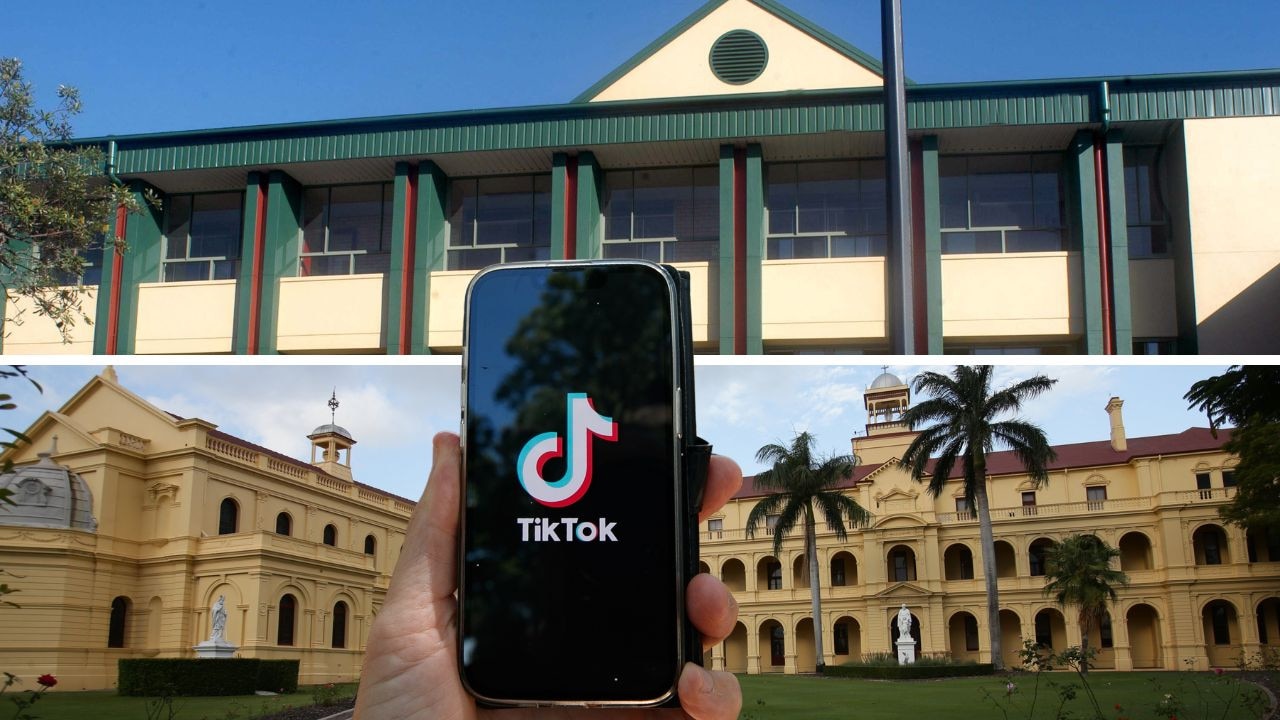Call for Aussie schools to appoint experienced teachers to ‘coach’ colleagues and prevent walkouts
A national body that promotes excellence in teaching and school leadership is calling for experienced educators to coach their peers as a way of developing and retaining inspiring teachers.

Education
Don't miss out on the headlines from Education. Followed categories will be added to My News.
Schools should formally appoint experienced teachers to “coach” their colleagues, to help reduce high dropout rates in the profession while also improving student outcomes.
This is the view of a national body promoting excellence in teaching and school leadership, which commended a Melbourne primary school’s approach of creating dedicated “teaching and learning leader” roles as a successful example.
Australian Institute for Teaching and School Leadership acting chief executive Edmund Misson said schools should be harnessing the “valuable” expertise of their staff to develop environments where “teachers can learn directly from each other”.
Mr Misson said formalised teacher leader roles – like those in place at Sacred Heart Parish School in Sandringham, in Melbourne’s south – were becoming “increasingly common” in Australian schools, particularly larger ones.
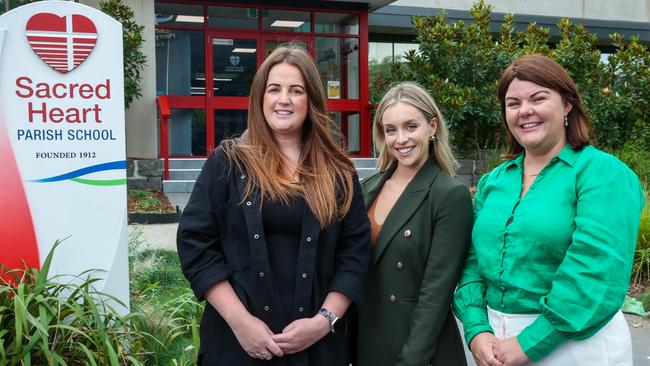
But expanding this to all schools could help address the biggest issues deterring people from entering the profession, and causing people to leave it.
Mr Misson said these included the worst staff shortages he had ever seen, burnout, teachers feeling like they were being “thrown in the deep end” and perceived lack of opportunity for career progression and pay rises.
“Principals and school leaders should be looking at their staffing and budgets to see if there are ways for teachers to take on these roles, even if they’re not full-time positions,” he said.
“Education departments, and Catholic school systems and so on, also have the capacity to create formal positions that might be working across (multiple) schools.”
Technology could also fulfil this role in schools with severe staff shortages, Mr Misson said, pointing to AITSL’s My Teaching Advice, which matches early-career teachers with experienced teachers online for real-time targeted guidance.

He said providing teachers, particularly beginners, with formalised mentors could:
Reduce their workloads and time pressures by developing school-wide consistent approaches to teaching and allowing for collaboration on lesson planning;
Ensure they have a clear support system so they don’t feel “isolated” or like they have been “thrown in the deep end”; and,
Show them a pathway to career progression and possible salary increases, which evidence showed was vital to making the profession more attractive.
Teachers who adopted leader roles should receive recognition and rewards, he said: “Survey data shows money is not what motivates teachers, or the thing they’re most worried about.
“But teachers are doing really important work and should be well remunerated for it.”
The belief that “when we know better, we do better” drives the teachers of Sacred Heart – which is governed by Melbourne Archdiocese Catholic Schools – to learn from their colleagues. That, and the desire to get the best out of their students.
Drawing on 15 years of teaching experience, Sarah Rafferty has overseen a “rigorous professional development” program at the school since last year, as Teaching and Learning Leader.
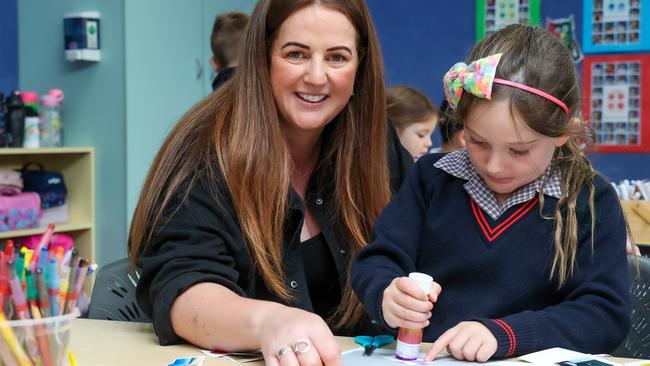
She is supported by a team comprising Literacy and Numeracy Leaders, and leaders overseeing wellbeing and learning diversity programs, who run regular sessions, and model and observe teaching in classrooms to help guide their fellow teachers.
“Being freshly out of the classroom, I like to think I have my finger on how best to support teachers (to) improve their teaching capacity and students’ abilities,” she said.
Key to this is championing evidence-based teaching practices as a consistent approach for all students from Grade Prep to 6.
To determine this path, Ms Rafferty and Sacred Heart’s Literacy Leader, Kate Stroud studied Masters of Teaching and did further research by listening to podcasts, reading articles and looking at “what the best schools were doing”.
“The evidence suggests students in the primary years learn best with the teacher at the front of the room telling them what that they need to know,” Ms Rafferty said.
“A lot of primary schools still run with an inquiry-based approach, where it’s kind of like ‘kids, choose your own adventure’. So we’re hiring teachers who talk to us about needing to rewire their way of thinking.”
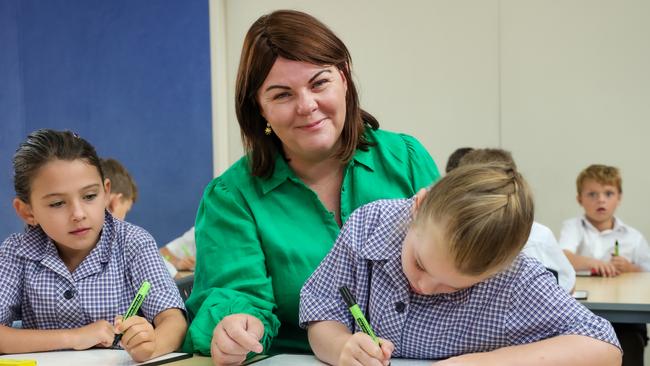
Principal Simon Collis said he did not believe his school’s leadership structure was particularly common, but it should be.
“I’d like to see schools function almost like a university of best practice, where we can train our staff on-site and see that practical application in a school setting,” he said.
“We’re not only growing our children academically and from a wellbeing point of view, we’re growing our teachers professionally – getting the best out of our children by getting the best out of our staff.”
Students’ results suggest this is happening. Ms Stroud said the school’s Grade 2s recently ranked No.1 out of classes from 85 schools in a national writing assessment run by an organisation called No More Marking.
Developing a consistent approach for Sacred Heart teachers has also reduced their workloads.
“Engineers don’t periodically decide to build a bridge differently, a surgeon (doesn’t) do a hip operation differently. But in teaching, we often try and do that, to be a little bit creative,” Ms Stroud said.
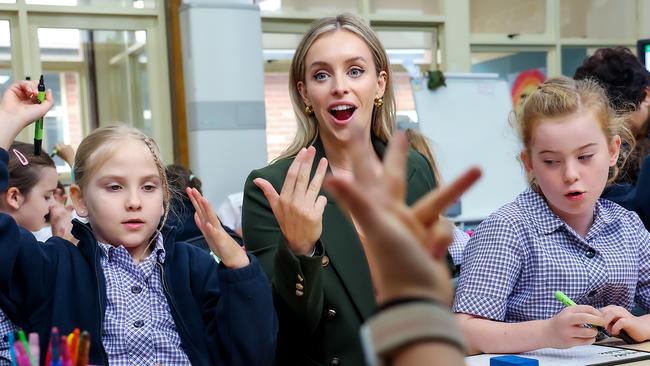
Ms Rafferty added: “The way we’re directing our teaching is making it easier for them. We are in the business of developing our resources, rather than reinventing the wheel each time.”
Sacred Heart is sharing its approach by inviting teachers from other schools into their classrooms to observe.
Grade 2 teacher Louise Donnelly has an “open classroom” that allows her to receive coaching from experts like Ms Rafferty and Ms Stroud, and then pass on their lessons to other teachers.
She believes having teachers teach other teachers “builds confidence” and ultimately allows them to get the best out of their students.
“A good teacher is always open to learning,” she said. “And we’re all learning from each other.”
samantha.landy@news.com.au
More Coverage
Originally published as Call for Aussie schools to appoint experienced teachers to ‘coach’ colleagues and prevent walkouts




